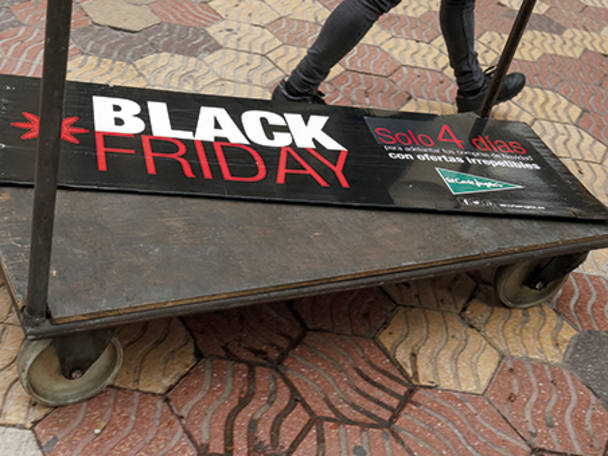As is usual for retailers, the race is on for Christmas. Except these days, the event itself is preceded by the American import known as Black Friday. The term is actually meaningless in this country, so first, a quick history lesson. It was invented to work like Boxing Day for US residents, who celebrate Thanksgiving the Thursday before. Originally, promotions had little to do with it, the day simply marked the start of the Christmas shopping season in the US. As such, it earned its name because it was the first day of the year when retailers turned profitable, or tipped 'into the black'. But as more retailers cottoned on, so the promotions started to gather momentum. Soon enough, international retailers with significant online prowess such as Amazon (US:AMZ) saw potential in offering one-off cut prices to customers globally, and Britain's retailers have been scrambling to compete ever since.
Last year's Black Friday threw up some interesting trends. Unlike the US where most of the population enjoys a break from work on Black Friday, Britons are still largely confined to the office. This made last year's event in the UK 'online Black Friday'. Despite widespread deals on the high street, stores didn't record a substantial uptick in footfall, but rather a surge in traffic to websites.
Worryingly, some retailers were unable to cope with the high demand, and struggled to fulfil orders. Given high-street footfall numbers have been in steady decline for most of this year, one could assume that if Black Friday bargain hunters make themselves heard at all, it will be via the internet.
Some believe the success of this year's event is on shaky ground given the current political backdrop. Since the UK voted to leave the European Union, a dark cloud has been cast over the resilience of consumer spending in Britain. But Ben Preston, an investment analyst at Orbis Investment Advisory, believes this is misguided.
"The Brexit vote hasn't harmed consumers' willingness to go shopping, it's had an impact on the value of currency," he says. This is important in two ways. Yes, the devaluation in sterling has made the UK a more attractive shopping destination for tourists, but it has also forced many retailers to consider price increases to offset what will undoubtedly be an inflated cost base before long. So where does that leave Black Friday deals? Still on the table, according to Mr Preston. In his words, the bonanza is a "competitive necessity" and works to establish participating retailers "as good places to shop".
What's more, industry forecasters expect Britain's shoppers to spend a significant amount on 25 November. A report conducted by the Centre for Retail Research estimates 14m customers will spend £1.96bn on Black Friday this year. That's roughly £2.31m per minute, a 19 per cent rise on 2015. More than a third of those shoppers are expected to buy their goods online, with computer games, small electricals and alcohol expected to be some of the top sellers. In fact, many retailers have extended promotions to cover the entire week, so these estimates could pale in comparison to what is spent over the seven-day stretch.
All this bodes well for the festive season - traditionally retailers' peak trading period. Recent data from the Office for National Statistics (ONS) showed retail sales have already picked up pace thanks to colder weather conditions. If Black Friday generates enough good feeling, this could flow through into Christmas numbers, too. But Mr Preston is more cautious on taking such a short-term view.
His belief is that retailers ultimately face a prisoner's dilemma: "You do something to gain an advantage at first," he says. "But by the time it becomes an industry trend, everyone is shot in the foot." He's referring to the effect on company margins, which are damaged by lower prices without a correlating drop in costs. According to Mr Preston it's "crazy" that shops have to start their peak season at rock-bottom prices as they have to spend the rest of the run-up to Christmas ramping back up to full-price sales.
Talking of low prices, how do the UK's value-based retailers compete here? Mr Preston says it's important not to assume the discounters have "razor-thin" margins to begin with, so the damage isn't necessarily extreme. What's more, they've already established themselves as value-based shopping destinations, and so don't have to work that hard to entice customers into stores. Their limited presence online also gives them fairly steady footfall numbers.










